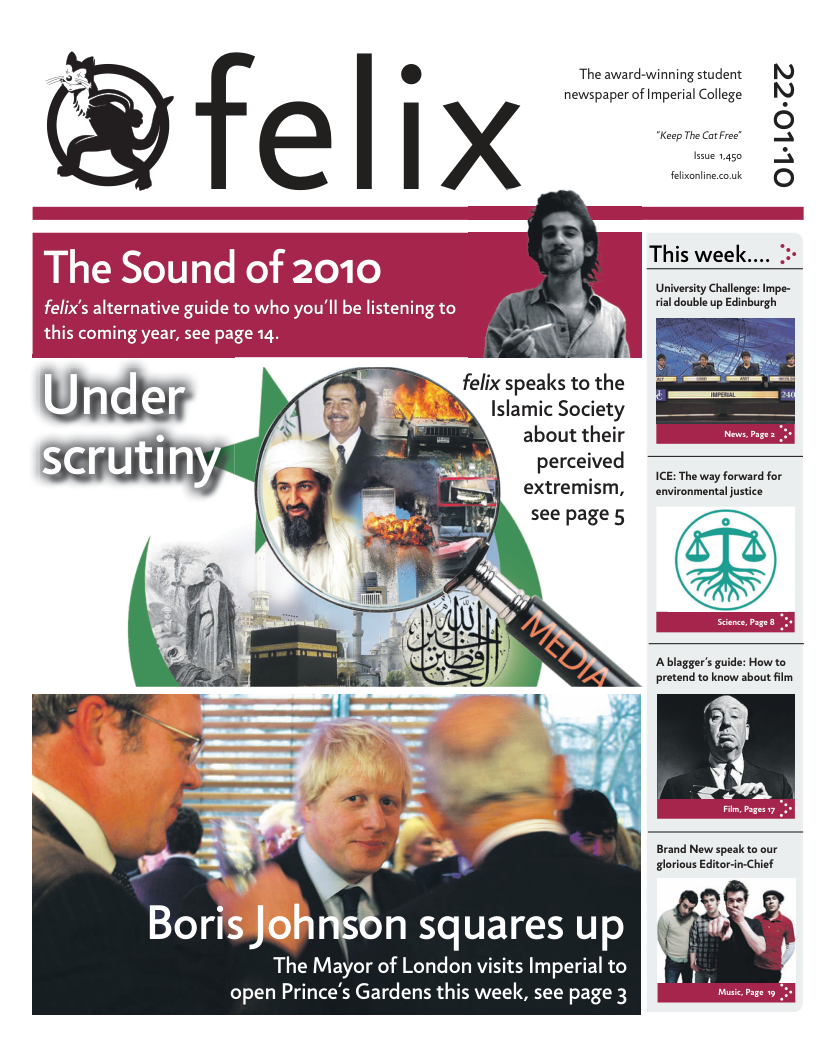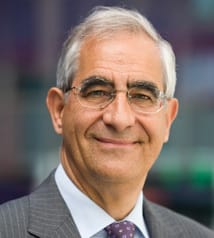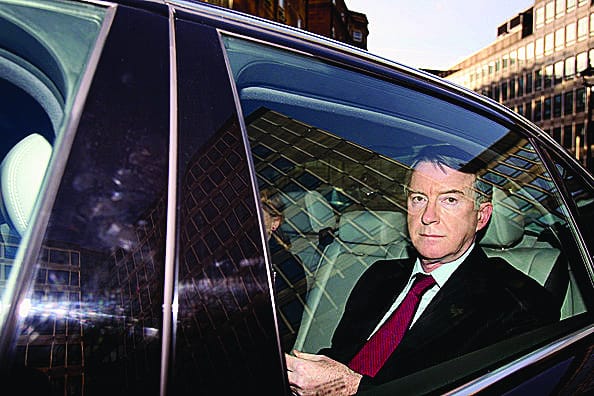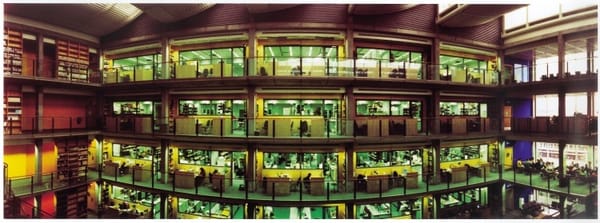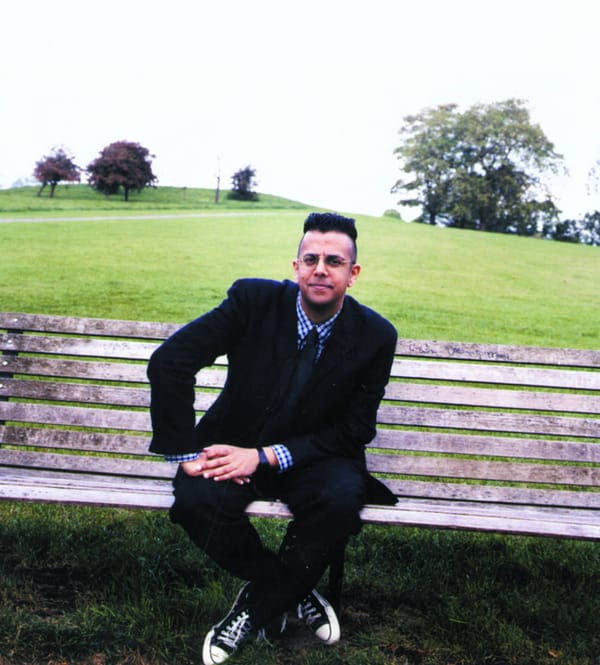Not Who You Think We Are
Dan Wan speaks to Islamic Societies President, Salman Butt, about the spotlight that UCL'S detroit bomber has brought
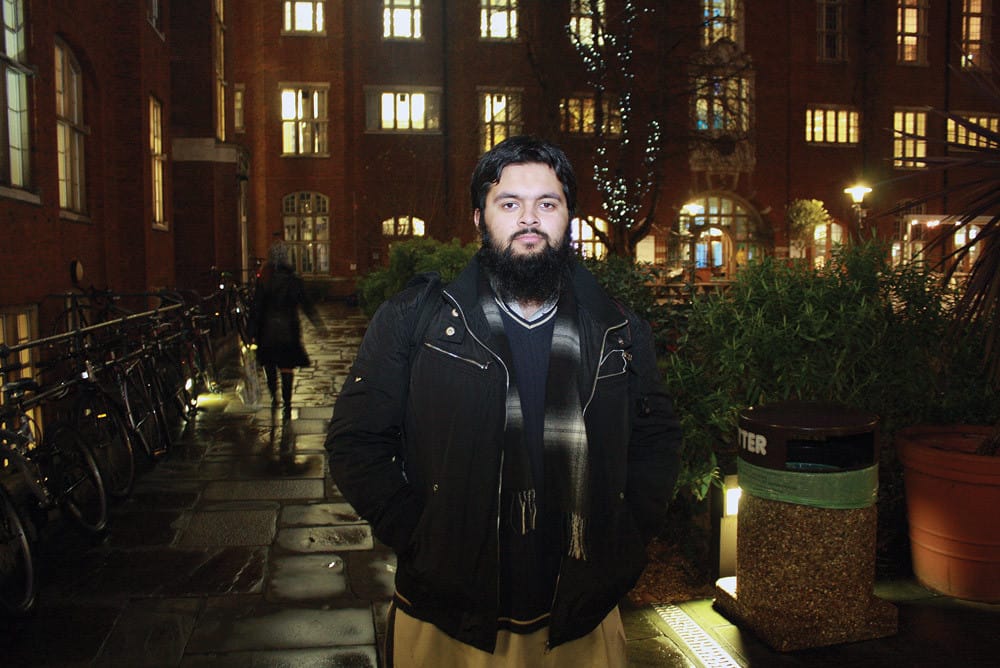
Shockwaves of anger and relief reverberated across the world on Christmas Day 2009 as the news of Umar Farouk Abdulmutallab’s failed bombing of Northwest Airlines Flight 253, en route from Amsterdam to Detroit. As news reports covered Boxing Day’s press, it was revealed that he was an Engineering graduate of University College London (UCL), and during his time there, became President of the university’s Islamic Society. Amutallab became the fourth Islamic Society President in London to be arrested in four years, and with this latest case being so high-profile, it was only inevitable that every university Islamic Society would soon be subject to the media’s magnifying glass.
TERRORISM AT IMPERIAL? Imperial is one of the closest universities to UCL, both academically and geographically, and in 2005 was listed by the Guardian as one of the many UK universities that had extremist groups operating within its ranks. This came after Babar Ahmed, a member of College IT staff was accused of having detailed plans for attacking a US warship on his personal computer. Ahmed was arrested in 2004 and remains behind bars without a conviction to this day; he currently stands as the longest detained-without-trial British citizen whilst fighting a court case to prevent his extradition to the USA.
THE “IRRESPONSIBLE’ MEDIA In light of recent events, felix spoke to this year’s Islamic Society President, Salman Butt, and asked him how the world’s attention on student Islamic societies has changed his experience as the leader of what he believes a peaceful and open society. He is seemingly most perturbed by how the ‘irresponsible’ national media are portraying student societies like his, and what impression that gives to the public. “Islamic Society at Imperial is very different to the media’s impression of us, that it is a breeding ground for terrorism and there’s strange things going on. But if you have a close look at any Islamic society at any university, you’ll find they’re just normal people as such and they’re not up to any mischief.” He is very understanding of the situation he finds himself in, but realises the potential detriments it might bring the society. “Its quite funny but when you think about it, if that’s the only exposure people are getting, people get scared. The sad thing is parents might tell their children not to come to us and not get involved. That just leads to them being loners and not being incorporated into the community at Imperial.”
IMPARTIAL IMPERIAL The week after Abdulmutallab’s failed bomb attempt, Anthony Glees, professor of security and intelligence studies at the University of Buckingham was quoted as saying that “all British universities must look at their Islamic Societies and demand assurances that no radicalisation will be allowed. If they can’t give those assurances, they should be disbanded.” After hearing the argument, Butt takes time to consider his immediate thoughts, and is eventually inconclusive. Demanding assurances that nothing questionable is going on within a society is not as clear-cut as Professor Glees demands. “I find it difficult to prove that someone isn’t breeding radicalisation, because how can you prove something doesn’t exist, how can you assure someone that nothing is happening? You have to show something is happening as the opposite, or otherwise?” We move onto matters closer to home, and I ask how he’d deal with members of the society that harboured views that wouldn’t hold well in the public eye. I get the impression that he has encountered such perspectives, but they are not ones that he particularly shares. When I ask him if he thinks that extremist views are flying under his radar, and hence also the College’s, he states that he sees the Islamic Society as place that opens dialogue and gives advice. He feels that it is not his, or the society’s, place to shut anyone’s mouth by force, including one that maybe spitting nails. “I don’t condemn people for having certain views or opinions, but if there were radical opinions like that, we would discuss them.” Even though Imperial College Union have little in the way of a political agenda, free-speech is traditionally important for students’ political weight in society. Butt recognizes this and reiterates his standpoint. “That is what university is about, we can’t just force these people to hide their views and go underground; everyone has an opinion. It’s not a sin or anything to have one opinion,” he says. He makes the point that it is not a matter of wrong or right, but difference in opinion. I feel he’d make an excellent politician, and there is something to admire as he avoids demonizing people with extremist views, just like the British press have done, but never gives the impression that he agrees with these views either. It is almost like he is caught in two minds over defending his fellow Muslims and condemning their views and actions, which are deemed widely unacceptable to have. However, he strikes a fine balance in doing both. He states, “There’s no reason why we should harbour any ill feelings towards anyone that doesn’t agree with us on certain issues. Everyone should have the right to have an opinion on certain atrocities that have happened, as long as they don’t break the law doing it. That’s a whole different kettle of fish.” His open-mindedness is not something he feels national authorities are undertaking. As he talks, he is obviously frustrated by the fact that national authorities, the media and hence the public are taking a such a heavy hand in their dealings with suspicious student societies. To prove a point, he likens the Islamic society to any other society at Imperial on several occasions, and you can see why he does it. The term ‘Islamic society’ carries an unfavourable stigma, and replacing the description ‘Islamic’ with something like ‘knitting’ serves the argument extremely well. “Someone could use an Islamic society, or even a baking or knitting society to promote any agenda,” he jovially answers when I ask him if extremists are using student societies as platforms for promoting dangerous beliefs . * UNDER THE MAGNIFYING GLASS “People in Islamic societies are now those who get the finger pointed at them in the media,” he sighs. “A lot of members of Islamic societies may get arrested and get charged under certain anti-terror rules that we have in this country, unfortunately. That doesn’t mean they are actually terrorists or have committed anything.” The mention of Babar Ahmed is lingering in the air. He is quite clearly famous for all the wrong reasons, and his strong connections with Imperial College, the institution we are both sitting within, suddenly gives the conversation a very realistic twist. “There are so many people in prison without having a sentence put on them such as Babar Ahmed, from Imperial. He’s still in prison and hasn’t been convicted of anything. I know it’s because there’s an atmosphere of fear and so on, but when it comes to Islamic societies there is obviously a lens which people look at Muslims through. The metaphorical idea of a lens which the public think they have the right to look at Islam through resonates greatly with me. There is no reason to distrust an honest man like Butt, but yet people are inspecting others just like him a bit too closely. “I know several people whose houses have been raided for no reason and haven’t been charged. They’re just regular people like you and me.” Throughout our 40-minute conversation, Butt is eager to push the idea of criminal activity, not just terrorism, away from student societies like his at Imperial. His point is that just because the guilty party is part of his society does not mean the society is guilty. “If you see it from our perspective, the vilification of Islamic societies harbouring terrorists is like if someone went to Sainsbury’s and then accused them of harbouring terrorism; the link is tenuous. We don’t train people to go break the law! If someone commits a crime, it’s upon them. They’re also at Imperial, live in London, shop at a certain place, are part of a certain mosque and part of a certain society, it doesn’t mean all they’ve been influenced by all of these things to do something.”
WHO’S RESPONSIBLE? Many fear that a way student extremists are influencing others with their radical beliefs is via the invitation of guest speakers to events held by student societies. In 2008, Imperial saw a fiasco unfold as ex-Malaysian Prime Minister, Mahathir bin Mohamad visited Imperial on the invitation of Political & Philosophical Society. His controversial opinions as a terrorism-sympathiser sparked off many security and censorship concerns, and it ended with a high-up College authority banning all external media and attendance from the event twenty minutes before it was due to commence. UCL have been criticised by the media for not monitoring their students’ activities, namely Abdulmutallab’s, closely enough, including the guest speakers he invited as part of a now well-publicised War on Terror week he helped organise. Since Mahathir bin Mohamad’s visit, College and the Union screen any guest speaker invited to the university. Students must have a Guest Speaker Form approved by security before their event planning can proceed. I asked Butt what he thought of the protocols used by College, and the pride of his response almost renders it a statement. “I guess they’re effective. We’ve never had any problem. Our axiom of ISoc of everything we do is to prevent any harm before you attain any benefit. This is something from Islamic principles that we encourage. So if there is a speaker that was deemed controversial, though there might be a benefit bringing him in, regarding freedom of speech and he may have some good ideas, the controversy that could be caused is enough for us to raise a flag and so we wouldn’t invite them. If the speaker is Muslim, they will understand, it is a well known axiom in our religion.” Alongside his own judgment, Butt also believes the healthy relationship he has with College authorities creates a “really good balance” at Imperial. He adds, “We’ve got the freedom to operate but they also have the safety procedures such as speaker clearance checks by security. Also, we have such a close relationship with Andrew Willson, the Chaplain, and Sir Keith O’Nions, the Rector. We regularly exchange emails. They do keep an eye out on us but its not spying. It’s a healthy exchange of information. If no one knew about us, and we weren’t doing events, that harbours suspicion.” Butt also feels the detriment of the public attention Muslims have received in the past decade has added another dimension to Muslim students wanting to live a politically pro-active life at university. “Some people might hold political views, I don’t myself, but we live in a climate that if Muslim people are interested in politics, and a non-Muslim person is interested in politics, they won’t really be seen the same. For example, if someone disagrees with UK Foreign Policy, if he’s a Muslim, it’s questioned,” he says.
SAFETY NETS A thought crosses my mind, and I wander if he comes across any unprovoked hostility on campus. “Not really personally, there’s an odd post on a forum here and there and you have to live with that. If you give someone a platform like that, if they have hostile views, they come forward,” he confesses. My mind flashes back to Live!, Imperial’s student news website that allows users to post feedback anonymously. What Butt has pointed out certainly rings true when it comes to the message board posts relating to the stories of Babar Ahmed’s arrest in 2004. He does however, encourage people to report any “physical or verbal abuse”, especially if they are not confident enough to report it due to intimidation. With a cautious smile, presumably of relief, he adds, “Although thankfully Imperial isn’t a place where people lower themselves to that degree.” Whilst the media broadly announces that terrorism is being developed under the safety blanket of university campuses, as in Abdulmutallab’s case, Imperial’s campus and community is Butt’s own safety blanket away from the public’s spotlight of condemnation. He then adds, “But then there’s still the surrounding community.”

